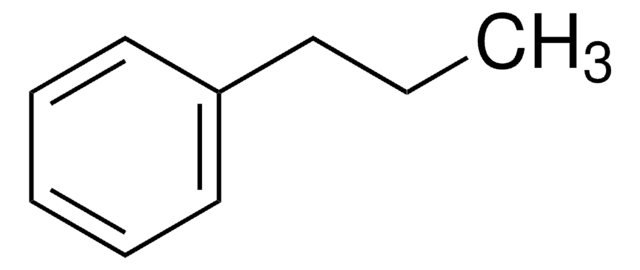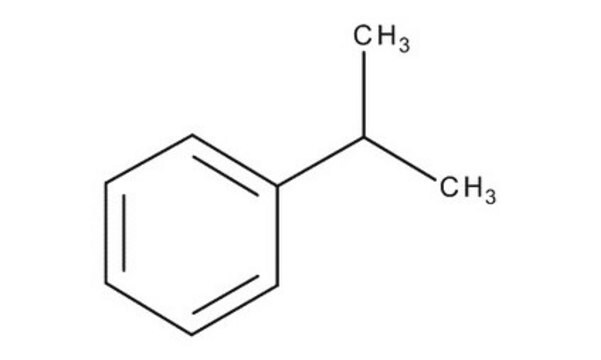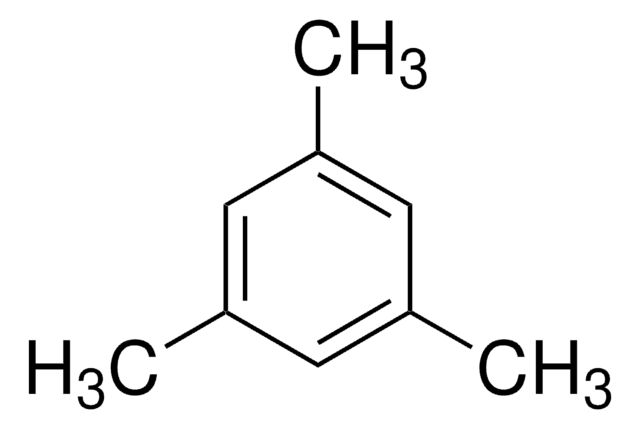28220
Cumene
analytical standard
Synonym(s):
(1-Methylethyl)benzene, 2-Phenylpropane, Isopropylbenzene, NSC 8776
About This Item
Recommended Products
grade
analytical standard
Quality Level
vapor density
4.1 (vs air)
vapor pressure
8 mmHg ( 20 °C)
9.7 mmHg ( 37.7 °C)
Assay
≥99.5% (GC)
autoignition temp.
797 °F
shelf life
limited shelf life, expiry date on the label
expl. lim.
6.5 %
technique(s)
HPLC: suitable
gas chromatography (GC): suitable
refractive index
n20/D 1.491 (lit.)
n20/D 1.491
bp
152-154 °C (lit.)
mp
−96 °C (lit.)
density
0.864 g/mL at 25 °C (lit.)
application(s)
environmental
format
neat
storage temp.
2-8°C
SMILES string
CC(C)c1ccccc1
InChI
1S/C9H12/c1-8(2)9-6-4-3-5-7-9/h3-8H,1-2H3
InChI key
RWGFKTVRMDUZSP-UHFFFAOYSA-N
Looking for similar products? Visit Product Comparison Guide
General description
Application
Signal Word
Danger
Hazard Statements
Precautionary Statements
Hazard Classifications
Aquatic Chronic 2 - Asp. Tox. 1 - Carc. 1B - Flam. Liq. 3 - STOT SE 3
Target Organs
Respiratory system
Storage Class Code
3 - Flammable liquids
WGK
WGK 3
Flash Point(F)
87.8 °F - closed cup
Flash Point(C)
31.0 °C - closed cup
Personal Protective Equipment
Regulatory Listings
Regulatory Listings are mainly provided for chemical products. Only limited information can be provided here for non-chemical products. No entry means none of the components are listed. It is the user’s obligation to ensure the safe and legal use of the product.
EU REACH Annex XVII (Restriction List)
Choose from one of the most recent versions:
Already Own This Product?
Find documentation for the products that you have recently purchased in the Document Library.
Customers Also Viewed
Our team of scientists has experience in all areas of research including Life Science, Material Science, Chemical Synthesis, Chromatography, Analytical and many others.
Contact Technical Service












